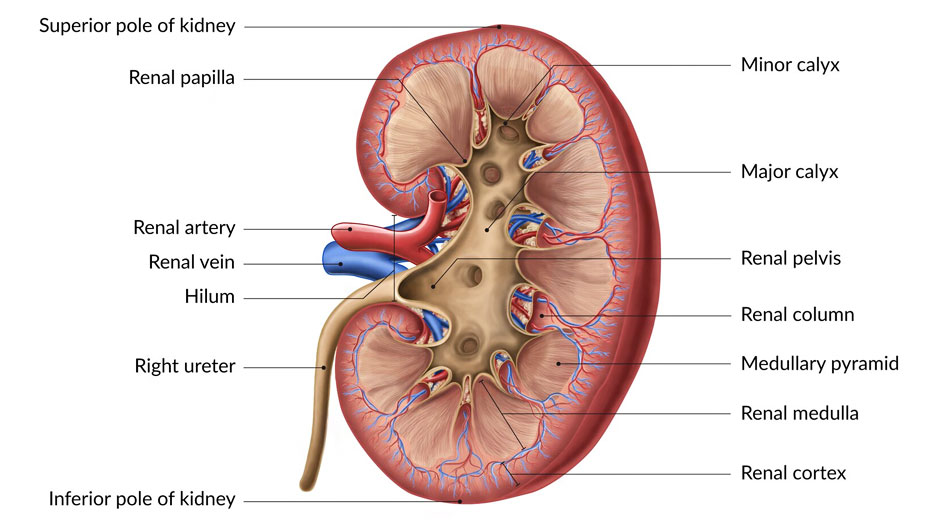
Renal Tubular Acidosis
Renal Tubular Acidosis (RTA) is a medical condition in which the kidneys fail to properly maintain the body’s acid–base balance. Normally, the kidneys remove acid from the blood and excrete it into the urine while reabsorbing bicarbonate to keep the blood pH balanced. In RTA, this process is disrupted, leading to a buildup of acid in the blood (metabolic acidosis).
Types of Renal Tubular Acidosis
RTA can be classified into different types, depending on which part of the kidney’s tubules is affected:
- Type 1 (Distal RTA): The distal tubule cannot properly excrete acid.
- Type 2 (Proximal RTA): The proximal tubule cannot reabsorb bicarbonate efficiently.
- Type 4 RTA: Usually linked to low aldosterone levels or resistance to its effects, leading to problems with potassium and acid balance.
Causes
- Genetic (inherited) kidney disorders
- Autoimmune diseases (e.g., lupus, Sjögren’s syndrome)
- Chronic kidney disease
- Certain medications (e.g., amphotericin B, ifosfamide)
- Obstruction of the urinary tract
- Metabolic conditions affecting acid–base balance
Symptoms
- Fatigue and weakness
- Muscle cramps
- Confusion or difficulty concentrating
- Bone pain or softening (osteomalacia/rickets in children)
- Kidney stones
- Frequent urination and dehydration
- Growth delays in children
Diagnosis, Treatment & Management
Renal Tubular Acidosis is diagnosed through a combination of blood and urine tests that measure acid–base balance, electrolyte levels, and kidney function, along with imaging studies to detect kidney stones or bone changes. In some cases, genetic testing may be advised to confirm inherited forms of RTA. The mainstay of treatment is correcting the acid–base imbalance, usually with alkali therapy such as oral bicarbonate or citrate solutions, which help neutralize excess acid in the blood. Potassium supplements may be prescribed if levels are low, while dietary adjustments are recommended to reduce acid load and prevent kidney stones. Management also involves treating any underlying cause, such as autoimmune disease, medication side effects, or hormonal imbalance. With regular monitoring of kidney function, bone health, and growth in children, most patients can achieve good control of RTA and prevent long-term complications like chronic kidney disease.



